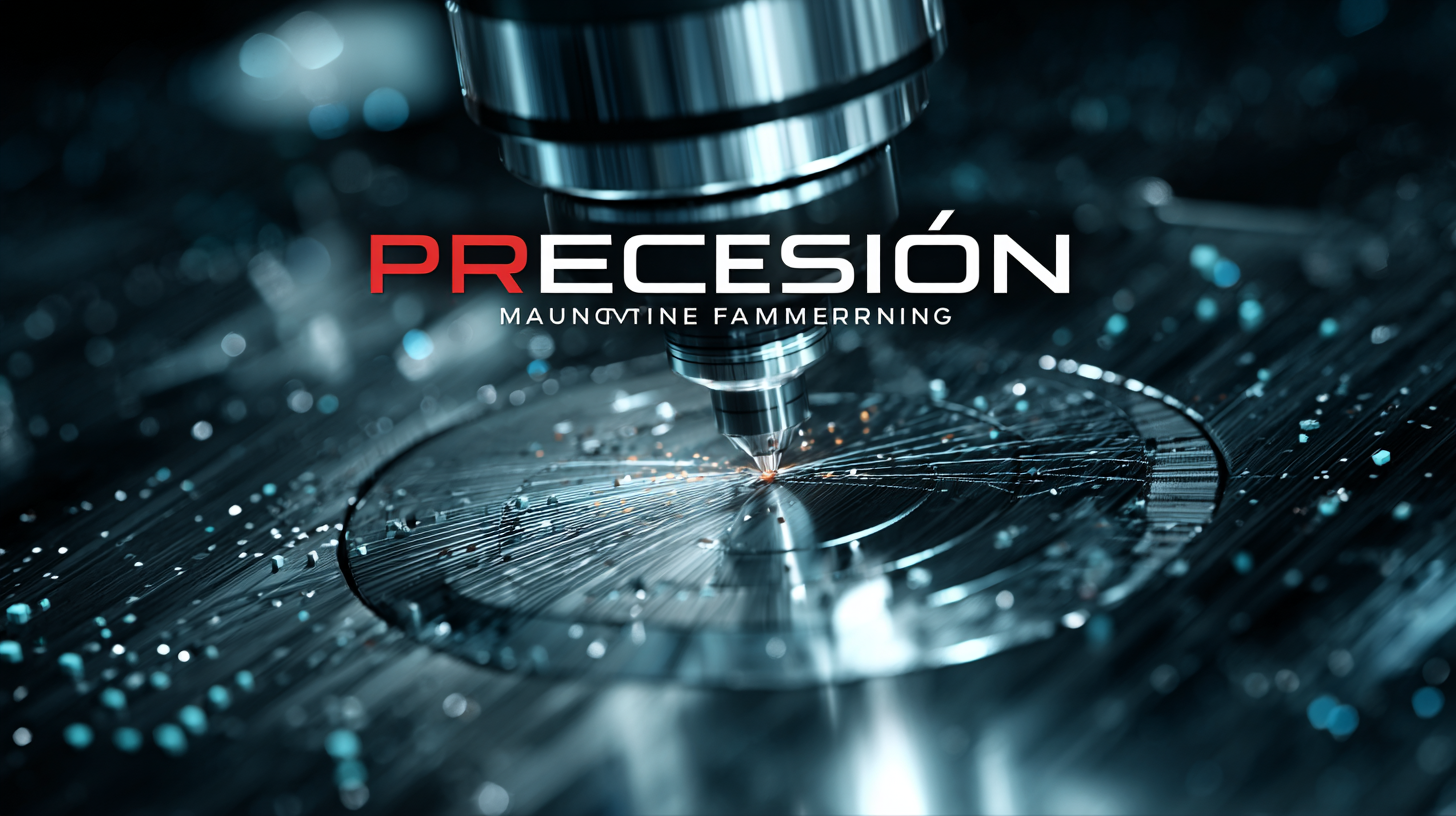How to Choose the Best Precision Manufacturing Partner for Your Global Supply Chain
In today's highly competitive global market, the importance of choosing the right precision manufacturing partner cannot be overstated. According to a report by Deloitte, companies that prioritize precision manufacturing in their supply chains experience a 20% reduction in operating costs and a 25% increase in product reliability. As industries increasingly demand high-quality components with exact specifications, aligning with a precision manufacturing partner that can meet these stringent requirements is critical. Furthermore, a study by the National Institute of Standards and Technology (NIST) reveals that organizations leveraging advanced precision manufacturing practices are 30% more likely to report higher customer satisfaction rates. Therefore, making an informed decision when selecting a precision manufacturing partner is essential for ensuring operational efficiency and maintaining a competitive edge in the global supply chain.

Identifying Key Criteria for Selecting Precision Manufacturing Partners
Choosing the right precision manufacturing partner is crucial for optimizing your global supply chain and meeting market demands. When identifying key criteria, one must consider not only the technical capabilities of a potential partner but also their adaptability to market changes. Advanced technologies, such as AI-based demand forecasting, are revolutionizing how manufacturers approach supply chain management. By utilizing machine learning algorithms, these partners can analyze vast datasets to identify seasonal trends and adjust production schedules accordingly, ensuring that your supply chain remains responsive and efficient.
Moreover, collaboration is essential in this selection process. A precision manufacturing partner should demonstrate a clear understanding of your industry's requirements and possess the agility to pivot strategies based on real-time insights gleaned from AI forecasting tools. This proactive approach not only enhances prediction accuracy but also mitigates risks associated with unforeseen market fluctuations, making your supply chain more resilient. In evaluating potential partners, prioritize those who are committed to leveraging innovative technologies to enhance their operations and support your business goals effectively.
Key Criteria for Selecting Precision Manufacturing Partners
Evaluating Manufacturing Capabilities and Technologies for Global Needs
When selecting a precision manufacturing partner for a global supply chain, assessing manufacturing capabilities and technologies is crucial, particularly in sectors like semiconductors where the landscape is rapidly evolving. The ongoing labor market gap in the U.S. semiconductor industry underscores the importance of choosing a partner adept at navigating these challenges. Reports indicate that the demand for semiconductors, central to numerous technologies, is expected to grow significantly, necessitating partners with robust production capabilities and skilled workforces.
Moreover, recent shifts in U.S. government trade policy introduce both opportunities and challenges for investment in manufacturing. Companies must evaluate potential partners not only on their technological competencies but also on their adaptability to these regulatory changes. Countries like India are emerging as critical players in the global semiconductor value chain, with the potential to establish multiple facilities in the assembly, testing, and packaging segments. As firms look to enhance their supply chain resilience, understanding these global dynamics and technological advancements is essential for making informed decisions when selecting a precision manufacturing partner.

Assessing Quality Control Measures and Certifications in Manufacturing
When selecting a precision manufacturing partner for your global supply chain, assessing quality control measures and certifications is critical. According to a report by the International Organization for Standardization (ISO), companies with ISO 9001 certification demonstrated a 20% decrease in product defects compared to non-certified firms. This statistic highlights the importance of partnering with manufacturers who adhere to recognized quality management standards, ensuring that your products meet both regulatory requirements and customer expectations.
Implementing a robust quality control system can significantly impact your supply chain efficiency. For instance, a study from the Aberdeen Group found that organizations with integrated quality management can reduce time to market by up to 30%. When evaluating potential partners, consider asking about their quality audits, testing protocols, and real-time monitoring capabilities.
Tips: Always request documentation of quality certifications and look for manufacturers who participate in continuous improvement programs. Additionally, consider on-site visits to ensure that the facilities and processes meet your standards. Engaging with partners who prioritize quality control will not only enhance your product reliability but also strengthen your brand reputation in a competitive market.
Understanding Logistics and Supply Chain Integration with Global Partners
When selecting a precision manufacturing partner for your global supply chain, understanding logistics and supply chain integration is essential for ensuring smooth operations across borders. Logistics plays a critical role in connecting various stages of production and distribution; therefore, your chosen partner should demonstrate expertise in managing transportation, warehousing, and inventory management. An effective logistics strategy facilitates timely delivery and mitigates the risks associated with international trade, such as customs clearance and regulatory compliance.
Moreover, supply chain integration with global partners requires a clear alignment of goals and communication protocols. Choosing a partner with established connections and a robust network can enhance collaboration, streamline processes, and ultimately reduce costs. Look for a manufacturing partner that employs advanced technologies such as real-time tracking and data analytics to promote transparency and responsiveness throughout the supply chain.
Prioritizing these factors not only improves operational efficiency but also strengthens relationships with suppliers and customers alike, creating a more resilient and agile supply chain.
Building Long-Term Relationships with Precision Manufacturing Firms
Building long-term relationships with precision manufacturing firms is crucial for success in today’s global supply chain. Trust and reliability are paramount qualities that organizations look for in their manufacturing partners. A commendable example is the collaboration between major aerospace firms and their precision manufacturing counterparts, where long-term agreements have led to elevated performance and innovation. Such partnerships enable firms to align strategically, thereby allowing them to share best practices, technical capabilities, and ultimately deliver products that meet ever-evolving market demands.
Moreover, businesses today face an increasingly competitive landscape as they seek to expand their operations in emerging markets. As exemplified by various industries’ moves to solidify their presence in economies like India and China, establishing strong relationships with local precision manufacturers can prove beneficial. By investing time and resources into these partnerships, companies can enhance their supply chain efficiency, reduce lead times, and increase their market share. Ultimately, a commitment to developing long-term relationships paves the way for sustainable growth and success in the dynamic world of precision manufacturing.


